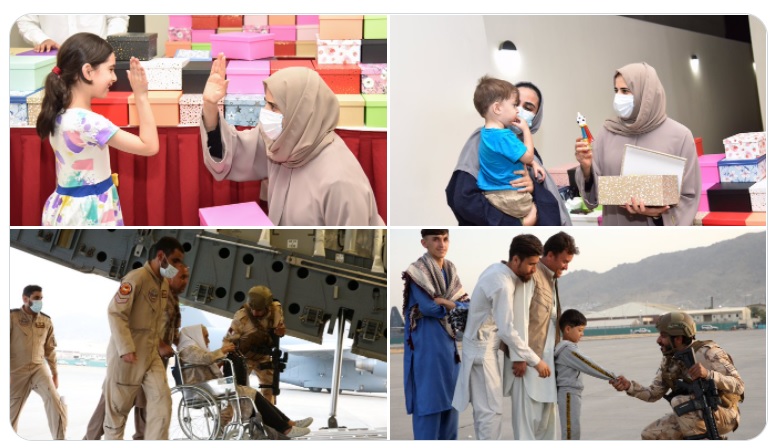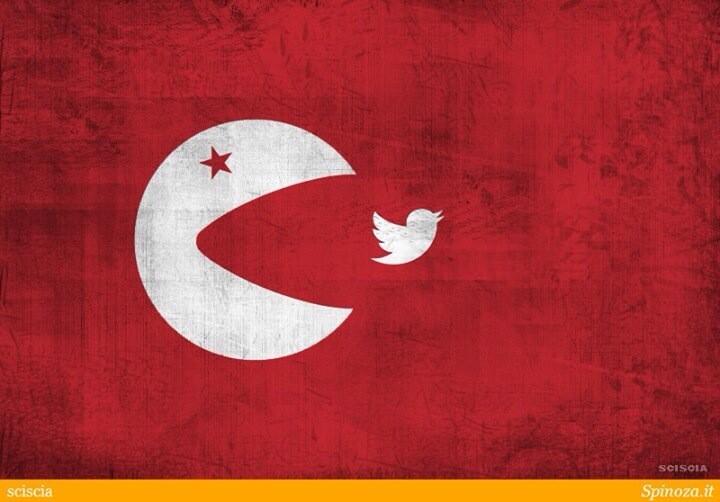
Trust is one of those intangibles which we as communicators must always focus on. Trust, that notion of one person relying on and believing in a second person, is key to changing attitudes and behavior. But how do you build trust, and what channels should you focus on? These are the questions that we need to answer to be able to do our job of building and protecting reputations. So, where should one begin when looking to build trust?
Based on research by YouGov, which was commissioned by the Middle East Public Relations Association and which included a survey of across the six Gulf states (Bahrain, Kuwait, Oman, Qatar, Saudi Arabia and the United Arab Emirates), Egypt, Jordan, and Lebanon, the place to begin isn’t online, but rather face-to-face. Fake media, less impactful advertising, and third-party advocacy are also reshaping where consumers in the region put their trust.
This is the first of four blog posts on the issue, to explore the findings country-by-country. but here’s the big picture headlines from the research, which surveyed 4,475 people across the region.
The first three posts will be a glimpse into the results, country-by-country, for Bahrain, Kuwait, Oman and Qatar, followed by Saudi and the United Arab Emirates in the second post later on in the week. The Levant and Egypt will follow next week. I’ll share big picture thoughts next week, in partnership with Gulf News.
Bahrain

152 people were surveyed in Bahrain, a third of whom were nationals and two-thirds expat.
Family, Friends and Third Parties
Bahrain’s population think highly of their friends and family. They scored the second highest in the Gulf for trust in face-to-face conversations with friends and family about products and services, at 88%. That trust doesn’t carry online, to social media; only 42% of respondents trust social media posts from friends and family about products and services. In contrast, 20% find such posts untrustworthy.
When it comes to third party endorsements, 69% of respondents agreed that they had more trust in what a third party says about a good or a service than what a brand says about its own goods and services. Only 8% disagreed.
Trust in Social Media
When it comes to social media posts by influencers, and people with lots of followers on products and services, there’s less trust and more distrust. Only 28% trust such posts, opposed to the 34% who show mistrust.
While social media has become more of an important source of information to Bahrain’s residents than it was five years ago (55% agreed with this statement, opposed to 14% who disagreed), just under half (47%) have low trust in what they see online (interestingly, the percentage of those who don’t is also 14%).
When it comes to the most popular social media channels for information on goods and services, Facebook topped the list (31%), followed by Instagram (27%), and WhatsApp came third (11%). A note on the research here – Twitter doesn’t appear in the responses, presumably as it wasn’t included in the survey options.
Trust in Media & Advertising
Trust in media and advertising in Bahrain is mixed. At the top was a surprising choice – brand websites; 40% of respondents trust what they see on a brand’s own website. Newspapers and magazines were second, at 38%, website articles at 36%, and TV and radio reporting both at 34% respectively.
Bringing up the rear were billboards at 31%, television ads at 29%, radio advertising at 24%, blogs at 22%, and online advertising at 20%. Trust has fallen in advertising over the past five years, with 68% saying they trust advertising less now than they did five years ago. While you may think this is good news for trust in media, you’d be wrong. Almost three-quarters of respondents (74%), agreed with the statement that so-called ‘fake news’ has lowered their trust in mainstream news media. Only 7% disagreed.
Kuwait

251 people were surveyed in Kuwait, just under a fifth of whom were nationals and over four-fifths expat.
Family, Friends and Third Parties
Kuwaiti residents are a little less trusting of their friends and family than their Bahraini counterparts; 85% said they found service and product recommendations in face-to-face conversations with friends and family as trustworthy. However, they’re more trusting than others online; 53% trust social media posts from friends and family about products and services. In contrast, 15% find such posts untrustworthy.
Third party endorsements are less trusted among Kuwait-based respondents; 63% said they had more trust in what a third party says about a good or a service than what a brand says about its own goods and services. Only 6% disagreed.
Trust in Social Media
Considering the number of social media influencers based in Kuwait, the response to the question of influencer trustworthiness was fascinating. Only a quarter of respondents found influencer posts on products and services trustworthy, compared to 31% who didn’t.
Social media has become an essential source of information on goods and services to people in Kuwait, according to the survey, with two-thirds agreeing that social media had become more important compared to five years back. However, trust online is an issue, with 48% having low trust in what they see online (this is opposed to 16% who don’t).
The most popular social media channels for information on goods and services are Facebook, which dominates at 56%, followed by Instagram (17%) and WhatsApp (9%).
Trust in Media & Advertising
Kuwait’s respondents view media in a similar fashion to their Bahraini brethren in terms of their most trusted choice, which was a brand’s own website (47%). The next most trusted medium was website articles (34%), and radio stories (32%). Newspapers and television fare worse, at 28% and 30% respectively, which is surprising considering Kuwait’s wide selection of newspapers and television (Kuwait has the most open media in the Gulf). Blogs were the least trusted, at 28%. Seven out of ten respondents (71%) said that fake news has dented their trust in mainstream media reporting.
Radio and online advertising are the least trusted, both with a 23% approval rating. Television advertising fares slightly better, at 28%. The most trusted advertising medium was that of outdoor, with billboards scoring a 33% approval rating. Two-thirds of respondents trust advertising less today than they did five years ago, with ten percent disagreeing. Similar to Bahrain, just under three-quarters of respondents (71%), agreed with the statement that so-called ‘fake news’ has lowered their trust in mainstream news media (5% disagreed).
Oman

The map of Oman excluding Musandam
151 people were surveyed in Oman, over 57% of whom were Omani nationals and 43% were expats.
Family, Friends and Third Parties
The Oman-based respondents were the least trusting of face-to-face recommendations for products and services from friends and family; 83% said they’d trust such a recommendation. That dropped to 43% for recommendations from family and friends on social media; in contrast, 23% of Omani respondents don’t trust product and service recommendations on social media from friends and family.
Third party endorsements are trusted by three-fifths of the respondents in Oman, with 12% distrusting what a third party says about a good or a service compared to what a brand says about its own goods and services.
Trust in Social Media
When it comes to influencers and social media, there’s little to tell when it comes to trust and mistrust – 33% trust posts by influencers or people with large followings recommending products and services, but 34% say the opposite.
Roughly half of respondents (52%) say that social media is a more important source of information about products and services than five years back. Half of the respondents (48%) have low trust in terms of what they see online (14% don’t).
Facebook is the most popular social media network, but only by a slim margin. A quarter of respondents said it was the most useful for information on products and services, compared to Instagram (19%), and WhatsApp (15%). LinkedIn came fourth, with 12%.
Trust in Media & Advertising
Trust in media among the Omani respondents is much higher when compared to the results from Bahrain and Kuwait. Radio is trusted the most (45%), followed by newspapers and television (both at 42%). Unlike Bahrain and Kuwait where they were the most trusted, brand websites are the fourth most-trusted, at 39%. Website articles are trusted by a third, with blogs coming in last at 29%. Sixty-three percent of respondents agreed with the statement that so-called ‘fake news’ has lowered their trust in mainstream news media, opposed to 13% who feel to the contrary.
When it comes to advertising, billboards and television are the most trusted, with 32% ratings respectively. Radio follows in third place, at 29%, with online advertising as a source of information abut products and services only trusted by 19%. Approximately 58% of respondents trust advertising today less than they did five years ago, compared to 11% who don’t. Fake news is little less of an issue in Oman, where 63% agreed with the statement that so-called ‘fake news’ has lowered their trust in mainstream news media. In contrast, 13% disagreed with the statement.
Qatar

150 people were surveyed in Qatar, 5% of whom were Qatari nationals and 95% were expats.
Family, Friends and Third Parties
The Qatar-based respondents were the most trusting of face-to-face recommendations for products and services from friends and family; 93% said they’d trust such a recommendation. That dropped to 57% for recommendations from family and friends on social media. Only 15% of Qatari respondents would not trust product and service recommendations on social media from friends and family.
Third party endorsements are trusted by two-thirds of the respondents in Qatar. However, 11% distrust whatever a third party says about a good or a service compared to what a brand says about its own goods and services.
Trust in Social Media
Qatar residents are similarly torn when it comes to trusting product and service recommendations from social media influencers or people with large numbers of followers. Roughly 30% do trust such recommendations, whereas 27% don’t.
However, what’s not up for debate is the importance of social media as a source of information on products and services today compared to five years back – 57% said it was, compared to 13% who said it isn’t. When it comes to trust in social media, almost half (47%) have low trust in what they see online, compared to 13% who don’t.
When it comes to which social media network is the most popular for finding information on products and services, Facebook is the leader by far with 60% of the vote. Surprisingly, LinkedIn is second with 10%. One in ten say that they don’t find any social media network useful for finding information.
Trust in Media & Advertising
The media trend in Qatar follows that of Bahrain and Kuwait; brand websites are the most trusted for information on products and services, at 44%. What does buck the trend is the second most-trusted source, which is website articles at 35%. Considering Qatar’s extensive media sector, trust in other media doesn’t show much difference to the other countries above: newspapers are trusted by 33%; radio by 31%, and television by 28%. Blogs are the least trusted, at 20%. Roughly 68% agree with the statement that so-called ‘fake news’ has lowered trust in mainstream news media, with 9% disagreeing.
Advertising fares worse, with the most popular medium, namely billboards, only scoring a 31% trust rating. Television follows at 29%, radio at 23%, and online at only 20%. Approximately two-thirds or 67% of respondents trust advertising today less than they did five years ago, compared to 10% who disagree. When it comes to fake news, 68% agreed with the statement that so-called ‘fake news’ has lowered their trust in mainstream news media, and 9% disagreed.












